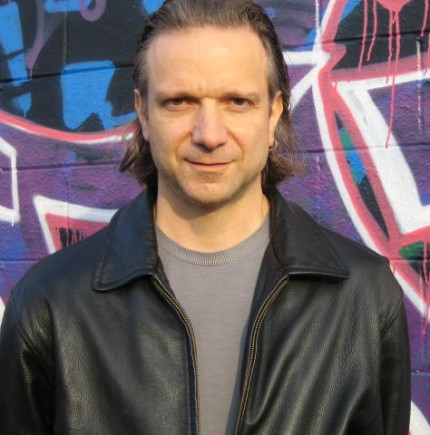Gandolfi choral premiere fails to converge at Grant Park Music Festival

The Grant Park Music Festival is marking the 50th anniversary season of the Grant Park Chorus in style, by commissioning two new works for chorus and orchestra, each of which will be unveiled this summer.
First up was Michael Gandolfi’s Only Converge: An Exaltation of Place, which received its world premiere Friday night at the Pritzker Pavilion by the Grant Park forces led by Carlos Kalmar. The program will be repeated Saturday.
The Boston-based Gandolfi has cast this ode to the lakefront festival, the city and downtown environs in two starkly variegated sections. The first is a whimsical riff on Chicago Tribune headlines from 1962, the year in which the Grant Park Chorus made its debut appearances (in oddly lightweight evenings of Cole Porter and Gilbert and Sullivan along with Orff’s Carmina Burana).
The punchy headlines (“rewritten and reorganized”) have their amusing moments showing that some things never change (“City Aide Return for Trial Sought” and “Eight to Two Cubs Fall Again to the Dodgers”). The music veers from a swing style to a slow heavy tread and back again with a jazzy uptempo bass and piano riff that builds to a heated coda, with Gandolfi managing to work in the theme from The Jetsons and Take Me Out to the Ballgame along the way.
The second movement deals with more weighty matters purporting to trace nothing less than Chicago’s geographic formation circa 12,000 B.C. through retreating glaciers, the Potawatomi Indians, and a deadly 1954 Lake Michigan seiche to the present, concluding with an ode to the current Millennium Park that manages to take note of Gehry’s Pritzker Pavilion and Cloud Gate.
Gandolfi is a greatly gifted composer with a colorful and distinctive style, often writing boldly and with audacity for large orchestra in music that mines populist genres. (Check out his Garden of Cosmic Speculation, recorded by Robert Spano and the Atlanta Symphony Orchestra on Telarc.)
But despite some passing attractive moments, Only Converge is a decided clinker. The choral writing veers from rhythmically epigrammatic to lumbering, and the musical inspiration is thin at best. Notwithstanding the title’s paraphrase of E. M. Forster (“only connect”), the two movements fail to cohere at all, let alone converge.
The comic-book headlines and Merry Melodies musical style of the first part feels like a completely different piece than the epic, self-conscious grandiosity of the second. The wordplay is too clever by half with its ha-ha punchlines and would-be ingratiating “Chicago jazz” elements. Instead of celebratory and endearing, the movement comes off as lame and patronizing, like some wise-guy tourist who spent a weekend in Chicago importunately telling a native resident all he should know about his city’s history.
The second movement has more musical substance yet the choral writing is largely uninspired. There is some pretty bald-faced cribbing from Aaron Copland and the stiff, civic pageantry of the coda with its waving of the Chicago Flag comes off as opportunistic and vacuous.
And for a city with a long and impressive literary tradition, couldn’t his collaborator Dana Bonstrom have come up with better writing than this? The second section is cast in a kind of archaic Whitman Lite (“Welcome wanderer, pilgrim, denizen!/Stroll with me on supple span/Pass through prairie grass and bloom/Song will wash o’er you like waves/Flowing forth from silvered sails”) and the shimmering coda and dud of a final line (“But the park? The park is the play.”) is about as deep and eloquent as a City Council civic proclamation.
The Grant Park Chorus certainly gave this premiere their all, with clarion corporate vocalism under Christopher Bell’s direction, with every word crystal-clear, for better or worse. Kalmar led dedicated and propulsive playing by the Grant Park Orchestra. Let’s hope for better results with the Sebastian Currier premiere next month.
The first half of Friday’s packed program offered equally committed performances. Kalmar did his best to disguise the unhealthy vulgarity of Liszt’s Les Preludes, while giving the boisterous coda all due clamor. Excerpts from Handel’s Music for the Royal Fireworks were solidly played, if more emphatic than festive, with balances off and the harpsichord inaudible.
William Schuman’s A Free Song came off best. Recorded by Kalmar and the Grant Park Forces two years ago and released on a Cedille CD, the American composer’s Secular Cantata No. 2 is clearly a work of its time (1943). Yet Schuman’s setting of Whitman’s poetry bracingly reflects its wartime vintage in the hard-edged choral writing and jabbing accents as well as the hope for an Allied victory in the triumphant conclusion. Kalmar led the Grant Park Orchestra and Chorus in a performance of such power and conviction that all doubts were swept aside, even in the exultant slam-bang coda.
The program will be repeated 7:30 p.m. Saturday at the Pritzker Pavilion. grantparkmusicfestival.com
Posted in Uncategorized

